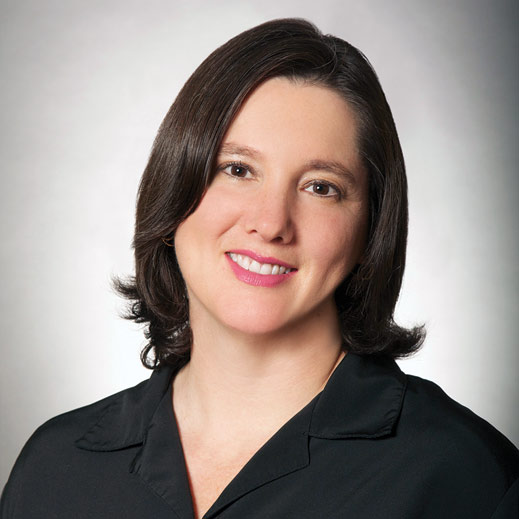Julie Schwedock ’85
Microbiologist helps keep drugs safe for consumers.
Drug safety issues hit the media two years ago when 64 people died and 687 more were sickened by tainted injections manufactured in a compounding pharmacy in Massachusetts. Julie Schwedock is working to prevent that kind of disaster as director of microbiology R&D at Rapid Micro Biosystems in Bedford, Massachusetts, a company that creates tools that drug manufacturers use to monitor microbiological contamination. The pharmacy’s problem was lack of proper testing, she says: “They were not working under controlled conditions.”
Schwedock, who grew up in Brooklyn, started out studying chemical engineering at MIT but found her passion in biology. “Life seems special and different from the inanimate world,” she says, “but we’re still constrained by the laws of physics and chemistry. We’re like bags of chemicals that can think.”
The summer after her sophomore year, Schwedock used an E. coli system to clone chromosome 21 for a Harvard Medical School researcher studying Down syndrome. “The power of the E. coli system got me interested in microbial genetics,” she says. Later, in MIT biology professor Graham Walker’s lab, she used microbial genetics to work on nitrogen-fixing organisms that live in symbiosis with the roots of alfalfa plants. “My lab partner and I made a mutant,” she says. “That’s the amazing thing about MIT: the undergraduates actually get to do stuff!”
This story is only available to subscribers.
Don’t settle for half the story.
Get paywall-free access to technology news for the here and now.
Subscribe now
Already a subscriber?
Sign in
You’ve read all your free stories.
MIT Technology Review provides an
intelligent and independent filter for the
flood of information about technology.
Subscribe now
Already a subscriber?
Sign in
The experience proved significant in more ways than one. “I met my husband and my thesis organism in same lab,” she says.
Schwedock and her husband, Brian White ’85, both earned PhDs at Stanford. After five years as an instructor at MIT, White became a professor of biology at UMass Boston; Schwedock completed two postdoctoral fellowships in microbiology at Harvard in the 1990s before deciding to leave academia. When she joined Rapid Micro Biosystems, it was a startup working on molecular diagnostics for infectious diseases. The company, now venture-backed and employing 100 people, launched a raft of new products earlier this year.
As the company moves forward, Schwedock uses her MIT-honed analytical abilities to lead multidisciplinary project teams and make decisions balancing science, business, and regulatory concerns.
She is a member of the Association of MIT Alumnae as well as Women in the Enterprise of Science and Technology, the Association for Women in Science, and the American Society for Microbiology. She and White live in Arlington, Massachusetts, with their two sons: an eighth grader and a sophomore studying biological engineering at MIT.
